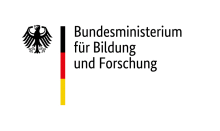Local Education Networks in Cooperation of All-Day Schools and Youth Services
The "Local Education Networks in Cooperation of All-Day Schools and Youth Services" project funded by Germany's Federal Ministry of Education and Research (BMBF) analyses the correlations between the structure of local education networks and the extension of all-day school and school-related offers. In six selected model regions (Arnsberg, Forchheim, Groß-Gerau, Hamburg, Jena and Lübeck), the research project reconstructs various strategies and developments in local educational policy with the aim of reducing educational disadvantage related to social background.
The generic term "local education network" can be briefly described by means of the following dimensions:
- Planning dimension: Local planning processes (school development planning, youth services planning, social and urban planning and school programme development) are carried out using an inter-institutionally agreed data platform and integrated under educational aspects.
- Civil-society dimension: Constitution of participation-oriented local education networks that fall under public responsibility. The networks are maintained by especially established local or regional education offices or similar organizations staffed by full-time personnel who are released from their normal duties to undertake this role.
- Learning dimension: Design of stimulating learning and living environments as opportunity structures for informal learning and aimed at ensuring heterogeneous learning groups. Examples in this field include (re)designing the school and school premises, the neighbourhood and local area; facilitating access to educational facilities (museums, libraries) and educational offers across different schools and school types.
- Professional dimension: Professions in the education sector cooperate closely or work together, a trend that may express itself in multi-professional teams or inter-institutionally coordinated advanced professional training of teaching and specialist staff.
This project focuses on theoretical foundations and analyses the correlations between the design of local education networks and the establishment and extension of school-related all-day offers. The following issues of research are examined in the model regions by applying a mix of qualitative methods:
- How highly does the key objective of "Reducing educational disadvantage related to social background" rate on the local agenda of educational policy, and what achievements are expected by the educational network in this respect?
- Which forms of political regulation and which bargaining structures result in the establishment of all-day schools and youth service facilities at local level?
- To what extent can tendencies towards extended funding of schools at local level and/or regionalized supervision of schools be identified?
- Is it possible to establish approaches to integrated educational and social reporting at local level and jointly supported structures of quality development and assurance for all-day offers?
- How are the identities and the fields of activities of educational institutions and facilities changing in local education networks?


